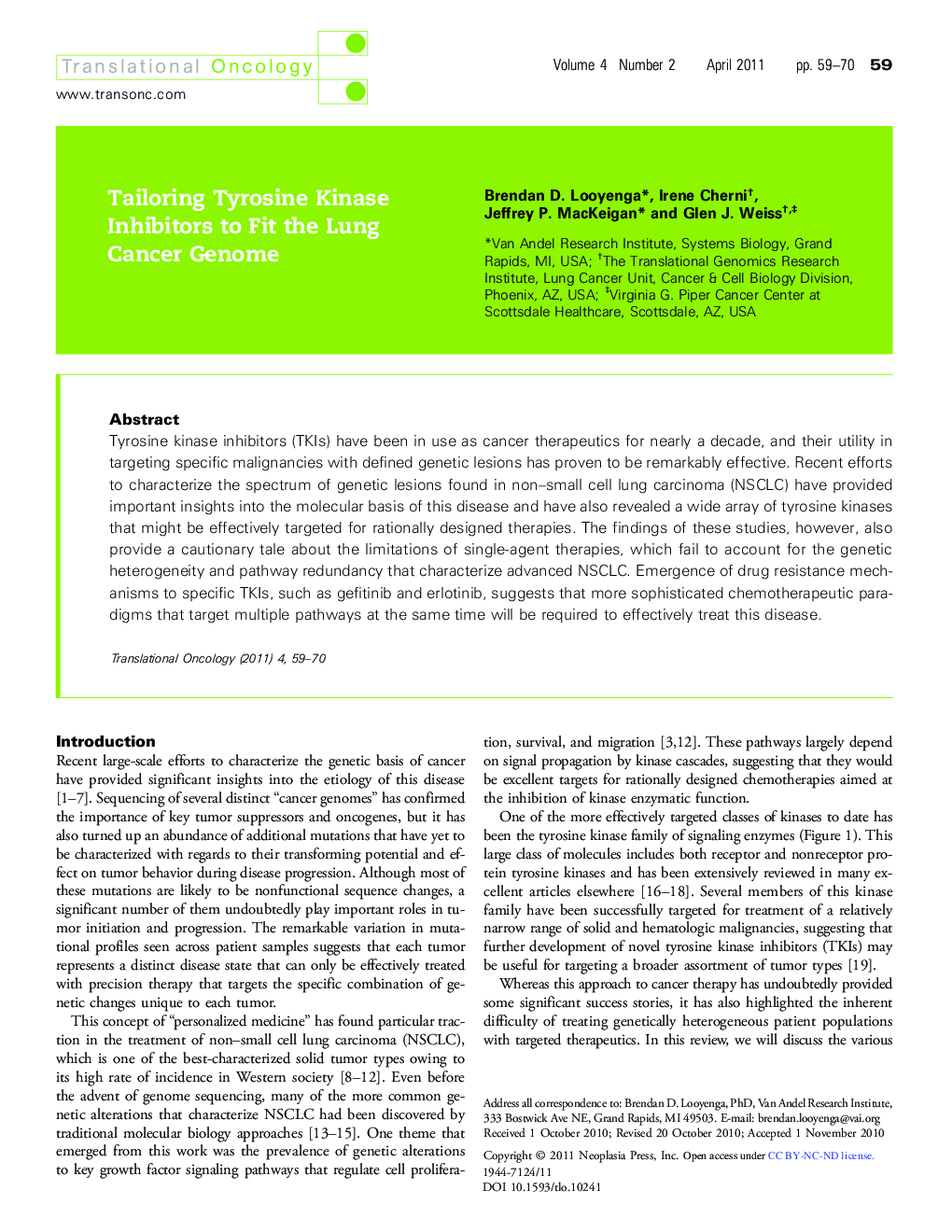| Article ID | Journal | Published Year | Pages | File Type |
|---|---|---|---|---|
| 2163987 | Translational Oncology | 2011 | 12 Pages |
Tyrosine kinase inhibitors (TKIs) have been in use as cancer therapeutics for nearly a decade, and their utility in targeting specific malignancies with defined genetic lesions has proven to be remarkably effective. Recent efforts to characterize the spectrum of genetic lesions found in non-small cell lung carcinoma (NSCLC) have provided important insights into the molecular basis of this disease and have also revealed a wide array of tyrosine kinases that might be effectively targeted for rationally designed therapies. The findings of these studies, however, also provide a cautionary tale about the limitations of single-agent therapies, which fail to account for the genetic heterogeneity and pathway redundancy that characterize advanced NSCLC. Emergence of drug resistance mechanisms to specific TKIs, such as gefitinib and erlotinib, suggests that more sophisticated chemotherapeutic paradigms that target multiple pathways at the same time will be required to effectively treat this disease.
